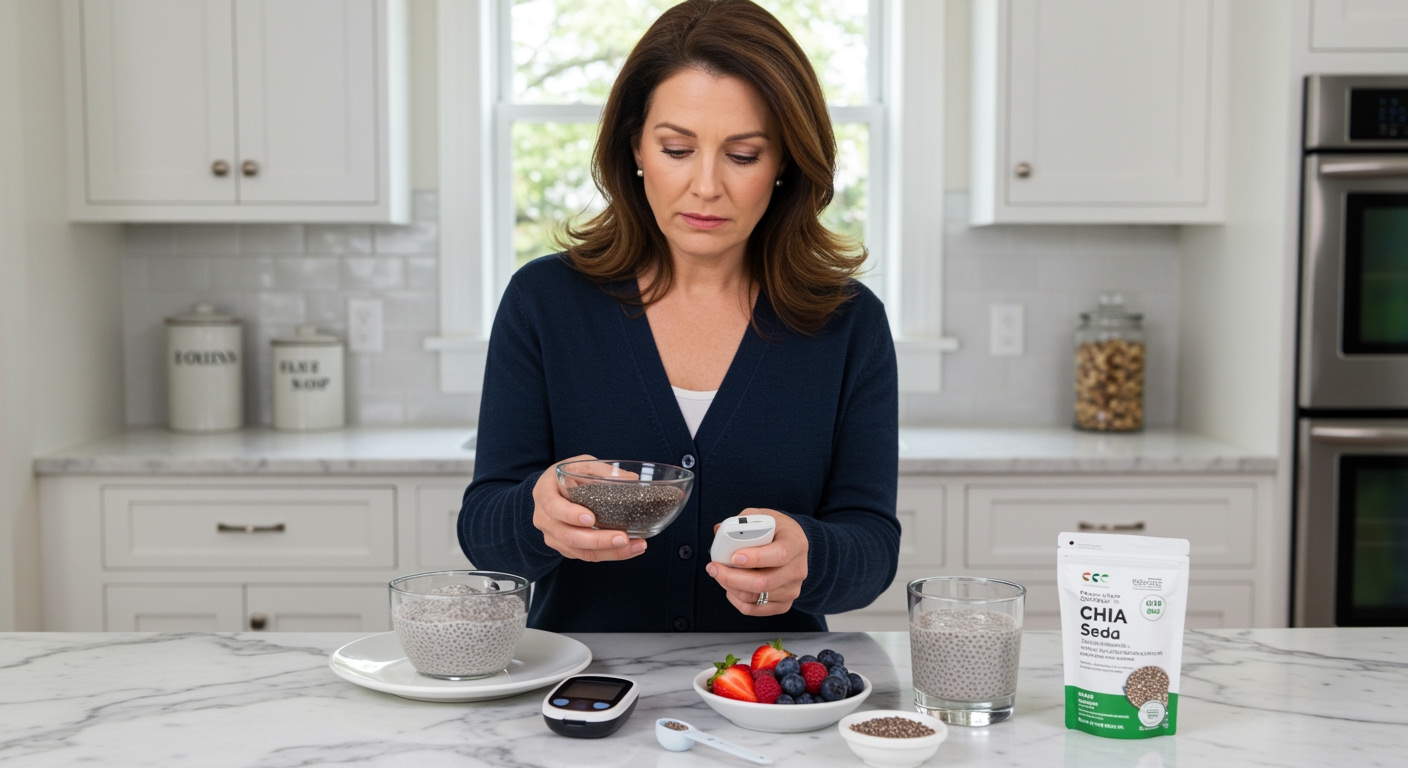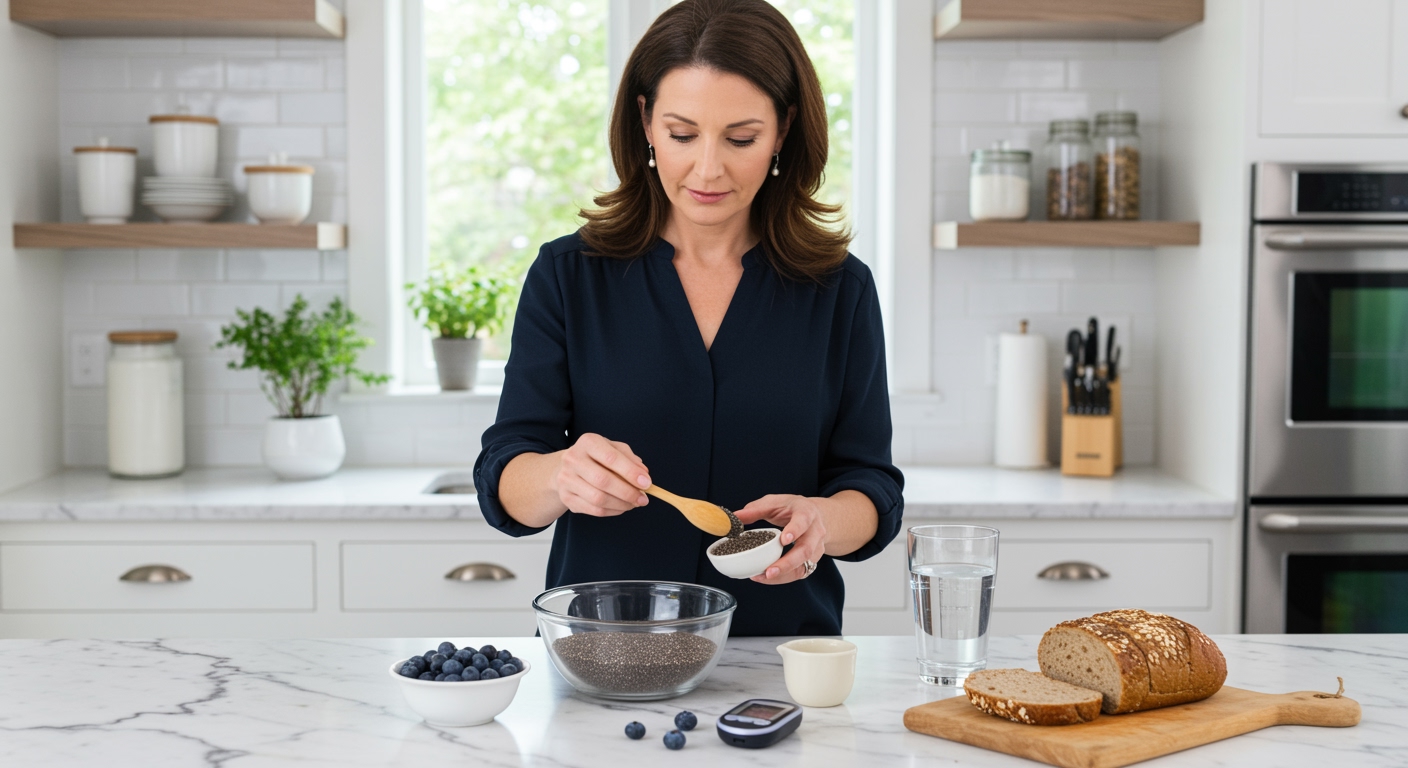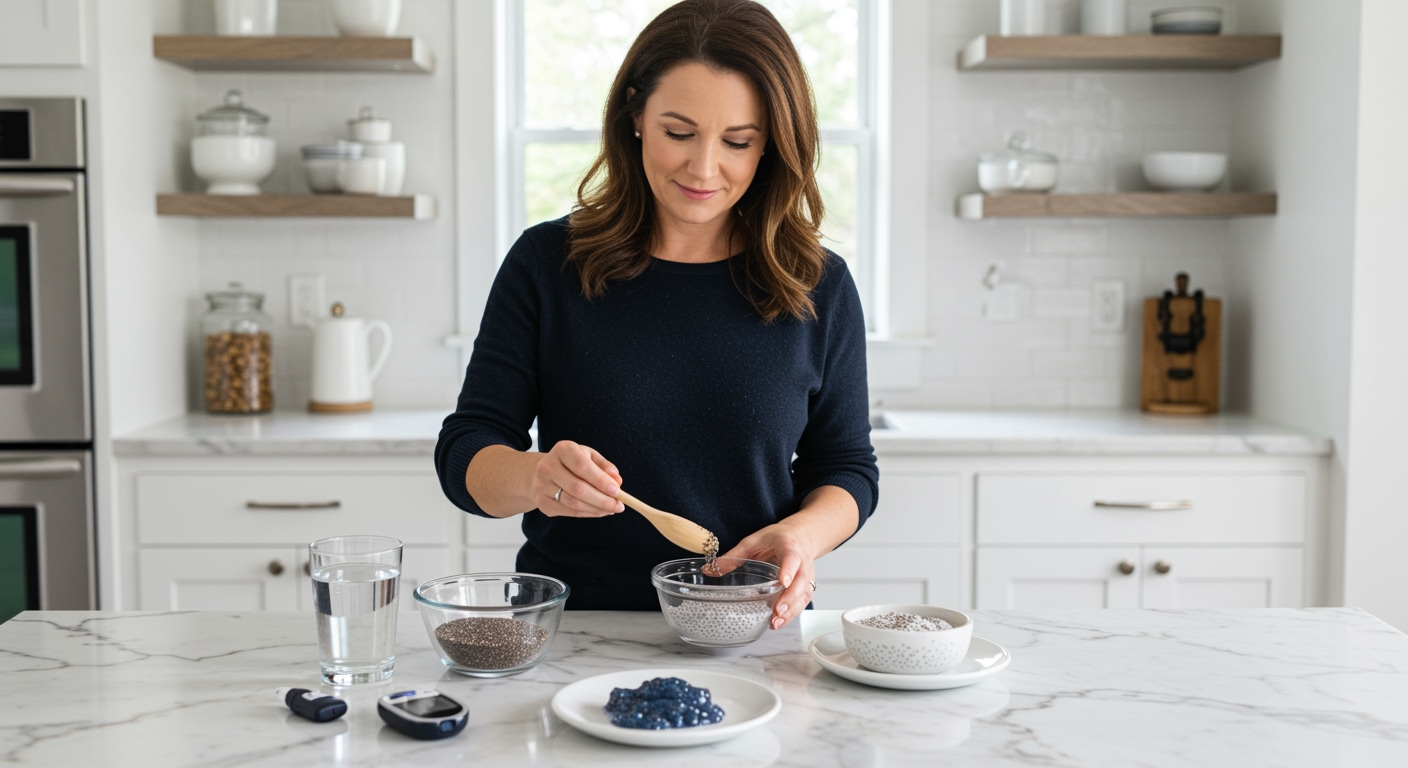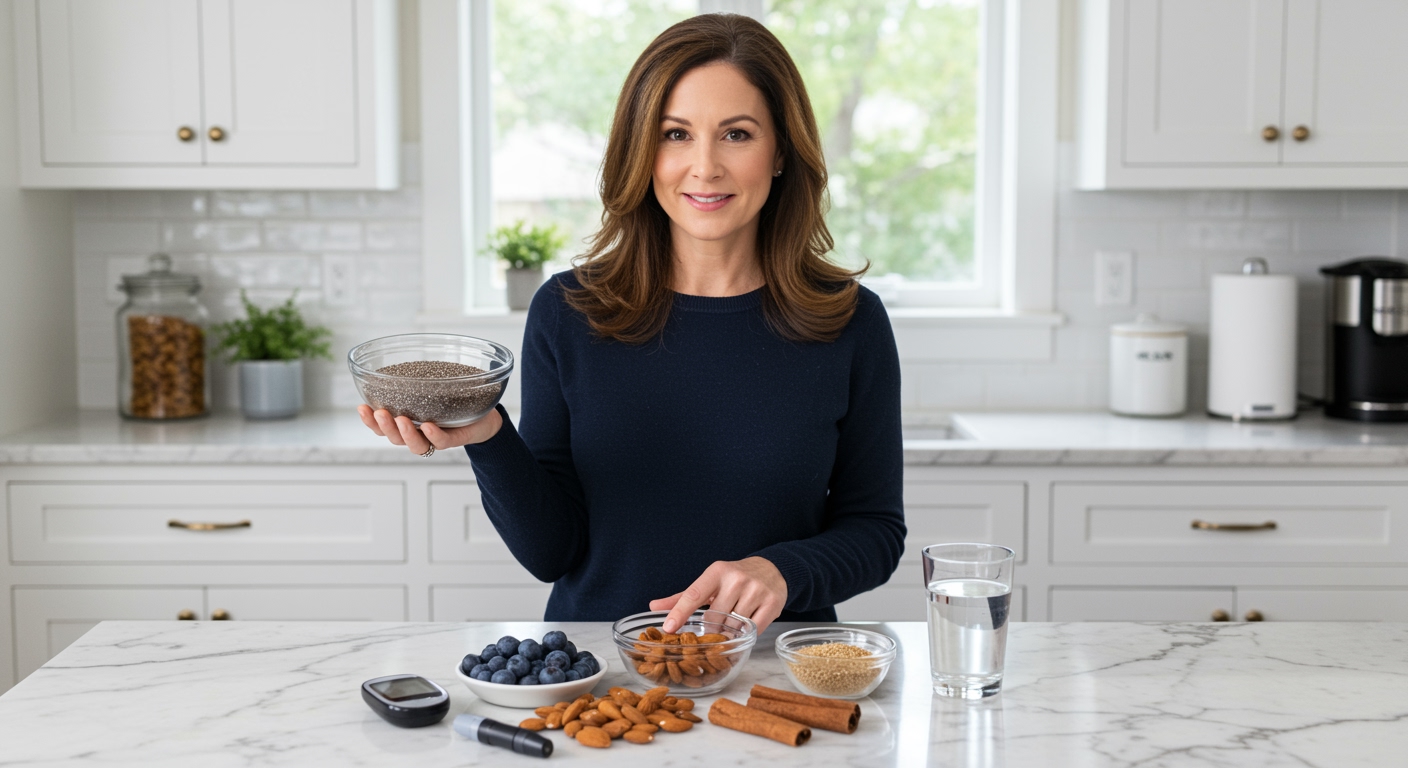✪ Key Takeaway: Chia seeds are generally safe for diabetes and may help stabilize blood sugar due to their high fiber content.
Introduction
You walk down the health food aisle and see tiny black seeds promising miraculous benefits for your blood sugar.
You might be wondering if these trendy chia seeds can actually help manage your diabetes or if they are just another overhyped superfood that could spike your glucose levels unexpectedly.
Hi, I am Abdur, your nutrition coach and today I am going to explain exactly how chia seeds affect blood sugar levels and whether they deserve a place in your diabetes management plan.
What Makes Chia Seeds Different From Other Seeds?
Chia seeds pack an impressive nutritional profile that sets them apart from regular seeds you might sprinkle on your salad.
These tiny powerhouses contain about 12 grams of fiber per ounce, which is nearly half your daily fiber needs in just two tablespoons.
The soluble fiber in chia seeds forms a gel-like substance when mixed with liquid, which slows down digestion and helps prevent rapid spikes in blood glucose.
Unlike many other seeds, chia seeds also provide omega-3 fatty acids and complete proteins, making them a well-rounded addition to any meal.
The glycemic index of chia seeds is extremely low, meaning they have minimal direct impact on your blood sugar when eaten alone.
✪ Fact: Chia seeds can absorb up to 12 times their weight in water, creating a filling gel that slows carbohydrate absorption.
How Do Chia Seeds Actually Affect Blood Sugar?
Research shows that chia seeds can help stabilize blood glucose levels rather than causing dangerous spikes that diabetics fear.
When you eat chia seeds with other foods, their high fiber content slows down the absorption rate of carbohydrates from your entire meal.
This mechanism works because the soluble fiber creates a physical barrier in your digestive system that prevents rapid glucose release into your bloodstream.
Studies have found that people with diabetes who consumed chia seeds regularly experienced more stable postprandial glucose levels compared to those who did not include them in their diet.
The protein content in chia seeds also contributes to better blood sugar control by promoting satiety and reducing the likelihood of overeating high-carb foods.
However, portion control remains crucial because even beneficial foods can cause problems when consumed in excessive amounts.
✪ Pro Tip: Start with one tablespoon of chia seeds daily and monitor your blood sugar response before increasing the amount.
What Does The Scientific Research Actually Say?
Multiple clinical studies have examined the relationship between chia seed consumption and diabetes management with promising results.
A significant study published in recent medical journals found that participants with type 2 diabetes who consumed chia seeds daily showed improved insulin sensitivity over a 12-week period.
Researchers discovered that chia seeds helped reduce hemoglobin A1c levels, which is a crucial marker for long-term blood sugar control in diabetic patients.
The anti-inflammatory properties of chia seeds also appear to benefit people with diabetes by reducing chronic inflammation that can worsen insulin resistance.
However, scientists emphasize that chia seeds work best as part of a comprehensive diabetes management approach that includes proper medication, regular exercise, and overall dietary improvements.
Some studies also noted that chia seeds helped participants achieve modest weight loss, which can significantly improve diabetes outcomes and blood sugar control.
✪ Note: Research consistently shows chia seeds are safe for diabetics when consumed in recommended portions of 1-2 tablespoons daily.
Are There Any Risks Or Side Effects To Consider?
While chia seeds are generally safe for people with diabetes, certain precautions deserve your attention before adding them to your daily routine.
The most common side effect involves digestive discomfort when people consume too many chia seeds too quickly without adequate water intake.
Chia seeds can potentially interact with blood-thinning medications due to their omega-3 content, so consult your doctor if you take anticoagulants.
Some individuals experience allergic reactions to chia seeds, particularly those who are sensitive to other seeds or nuts.
The high fiber content can cause gastrointestinal issues like bloating, gas, or constipation if you increase your intake too rapidly without proper hydration.
People with swallowing difficulties should be especially careful because dry chia seeds can expand in the throat and cause blockages.
Always soak chia seeds in liquid for at least 15 minutes before consuming them to prevent any choking hazards and improve digestibility.
✪ Pro Tip: Drink at least 8 ounces of water with every tablespoon of chia seeds to prevent digestive discomfort.
How Should You Include Chia Seeds In Your Diabetes Diet?
The key to successfully incorporating chia seeds into your diabetes management plan lies in strategic timing and proper preparation methods.
Start by adding one tablespoon of soaked chia seeds to your breakfast routine, which can help stabilize your blood sugar throughout the morning.
Mix chia seeds into low-carb smoothies or sugar-free puddings to create satisfying meals that will not spike your glucose levels.
You can sprinkle ground chia seeds over salads or vegetables to add nutritional value without significantly increasing the carbohydrate content of your meal.
Consider using chia seeds as a natural thickener for soups and stews instead of flour or cornstarch, which can raise blood sugar.
Always monitor your blood glucose levels when first introducing chia seeds to understand how your body responds to this dietary addition.
Remember that chia seeds work best when combined with other diabetes-friendly foods like lean proteins, non-starchy vegetables, and healthy fats.
✪ Fact: Soaking chia seeds for 30 minutes creates a pudding-like texture that helps you feel full longer and prevents overeating.
The Bottom Line
Chia seeds can be a valuable addition to your diabetes management toolkit when used correctly and in appropriate amounts.
The best foods for diabetes are not magical cures but practical tools that work consistently when used with wisdom and moderation.
I would love to hear about your experience with chia seeds or any questions you might have about incorporating them into your diabetes diet, so please share your thoughts in the comments below.
References
At NutritionCrown, we use quality and credible sources to ensure our content is accurate and trustworthy. Below are the sources referenced in creating this article:
- PMC: Chia Seeds and Diabetes Research
- PubMed: Clinical Study on Chia Seeds
- University of Toronto: Chia Seeds Promote Weight Loss in Diabetes
- North Coast Medical: Chia Seeds in Diabetes Diet





